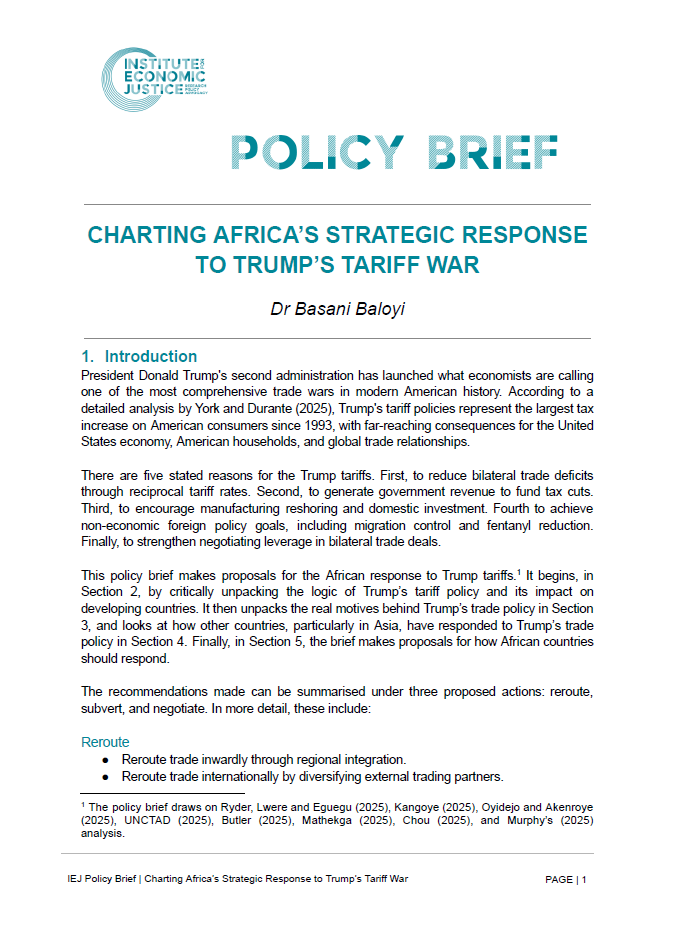Please note: this policy brief is shared here in draft form. A fully designed and laid-out version will be released soon.
By Dr Basani Baloyi
Introduction
Donald Trump’s second administration has launched a sweeping tariff regime, described as the largest trade war in modern history. While justified as a means to cut trade deficits, reshore manufacturing, and fund tax cuts, the tariffs function largely as a blunt instrument, inflating costs for American consumers while destabilising global trade, especially in the Global South.
For a deeper dive into these issues, watch our Economic Justice Matters episode, Trump vs BRICS | Inside global tariff crisis.
The Impact on Africa
Trump’s so-called “reciprocal tariffs” disproportionately penalise African countries that contribute little to the US trade deficit. South Africa’s Reserve Bank is projecting 100,000 job losses. Effectively, Trump’s trade policy signals the collapse of preferential access to the US market once guaranteed under AGOA.
The Trump Doctrine
Trump’s tariff war is best understood as part of his administration’s wider doctrine: a unilateralist, isolationist response to the perceived decline of US economic hegemony in a multipolar world. This approach undermines the rules-based global trade regime while exacerbating instability, especially for developing countries.
African Strategic Responses
Rather than absorbing these shocks, Africa must seize this moment to restructure its trade and industrial strategies. The brief proposes a three-pronged response:
- Reroute: Deepen regional integration through the African Continental Free Trade Area (AfCFTA) and diversify trade partnerships, especially with underutilised BRICS partners like India, Brazil, and Russia.
- Subvert: Advance targeted import substitution industrialisation in strategic sectors such as textiles and cocoa, and leverage critical minerals to secure industrialisation, skills transfer, and local value-addition.
- Negotiate: Build collective bargaining platforms within the African Union and regional blocs to negotiate fairer trade terms and prevent divide-and-rule tactics by external powers.
Conclusion
Trump’s tariffs expose the fragility of global economic governance but also present Africa with an unprecedented opportunity. By rerouting trade, subverting dependency, and negotiating collectively, African nations can transform from passive participants in global trade to active architects of their own economic destiny.

